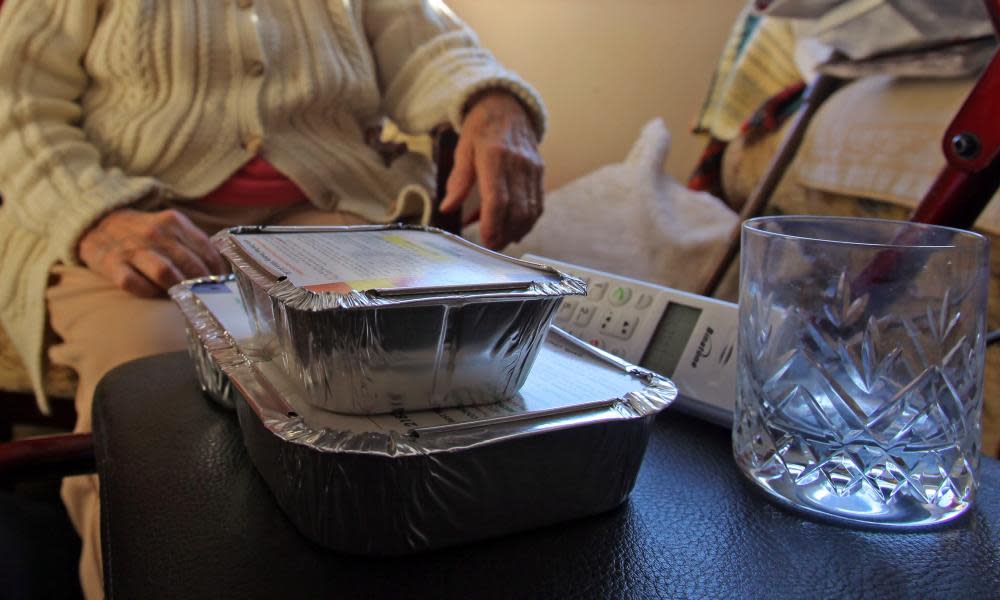More than 1m UK older people risk 'withering away' from hunger

More than 1 million older people are at risk of “withering away in their own homes” as a result of malnutrition caused by social isolation and cuts to public services, a cross-party group of peers and MPs claims.
The all-party parliamentary group on hunger says social isolation caused by bereavement, illness, immobility or confinement – such as through the loss of a driving licence – are the main causes of a largely “hidden” problem of elderly hunger in the UK.
Malnutrition, which costs the NHS an estimated £12bn a year, is exacerbated by reductions to social care packages, cuts to meals on wheels services and bus services, and local shop closures, a report by the all-party group says.
“Loneliness accompanied by a bowl of cereal and two sandwiches, every day, every week, should be unacceptable in modern Britain. But within the current legislative framework, it is almost inevitable,” it says.
The report says there is a heightened risk of malnutrition among older people who do not qualify for formal social care packages or whose help does not include assistance with shopping or cooking hot meals.
Annual spending on meals on wheels services was cut from £96m to £42m in the decade to 2013-14, it says. Fewer than half of local authorities now provide the service, down from 66% in 2011. Some councils have replaced meals on wheels with a link on their website to takeaway food shops, the report adds.
It calls for the withdrawal of winter fuel allowances from the very richest pensioners to invest in local services aimed at reducing isolation, hunger and malnutrition by providing – or making it easier for older people to access – hot and fresh food.
Supermarkets should do more to make it easier for older people to go shopping, it says, by providing community transport, offering lunch clubs in store cafes and introducing special “slow” checkout lanes for less mobile customers.
There are at least 1.3 million older people suffering from or at risk of malnutrition, the report estimates, although it points out that the latest robust figures date back to 2011, and hospitals rarely record malnutrition as a primary reason for admission.
Frank Field, chair of the parliamentary group, said: “Hidden beneath the radar, there are malnourished older people in this country spending two or three months withering away in their own homes, with some entering hospital weighing five and a half stone [35kg] with an infection or following a fall, which keeps them there for several tortuous days, if not weeks.
“The elimination of malnutrition amongst older people is urgently required for the sake of the NHS, and social care services, but above all for purposes of humaneness.”
Izzi Seccombe, chair of the Local Government Association’s community wellbeing board, said: “Significant funding pressures on councils are already threatening services that elderly people and their friends and families rely on, particularly meals on wheels and luncheon clubs.”
A government spokesperson said: “Malnutrition is a complex issue and most patients diagnosed in England have other serious health and social problems. We know better diagnosis and detection is key which is why we continue to train all health staff to spot the early warning signs of malnutrition so effective treatment can be put into place.”

 Yahoo News
Yahoo News 
